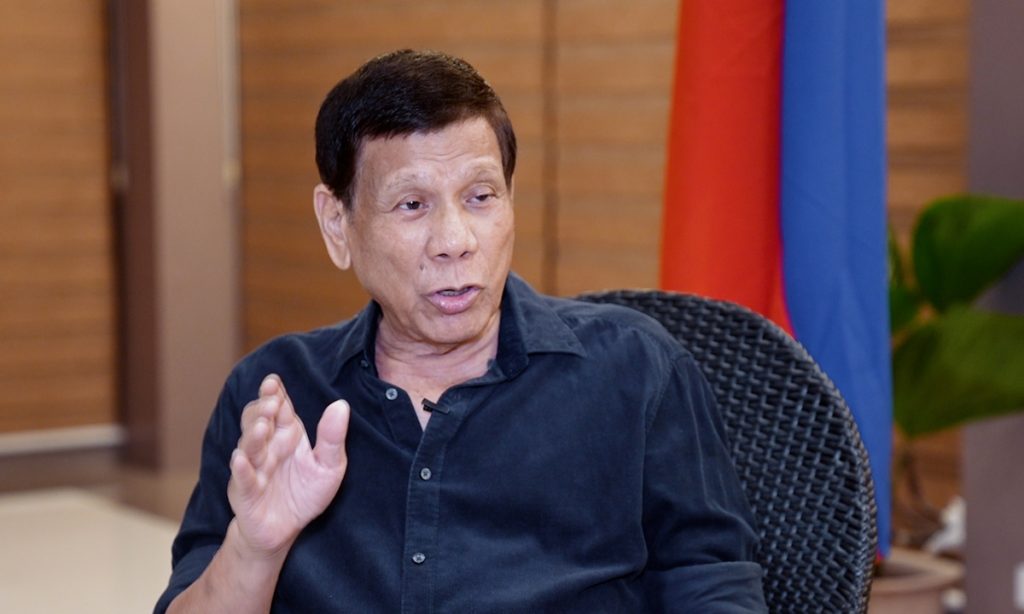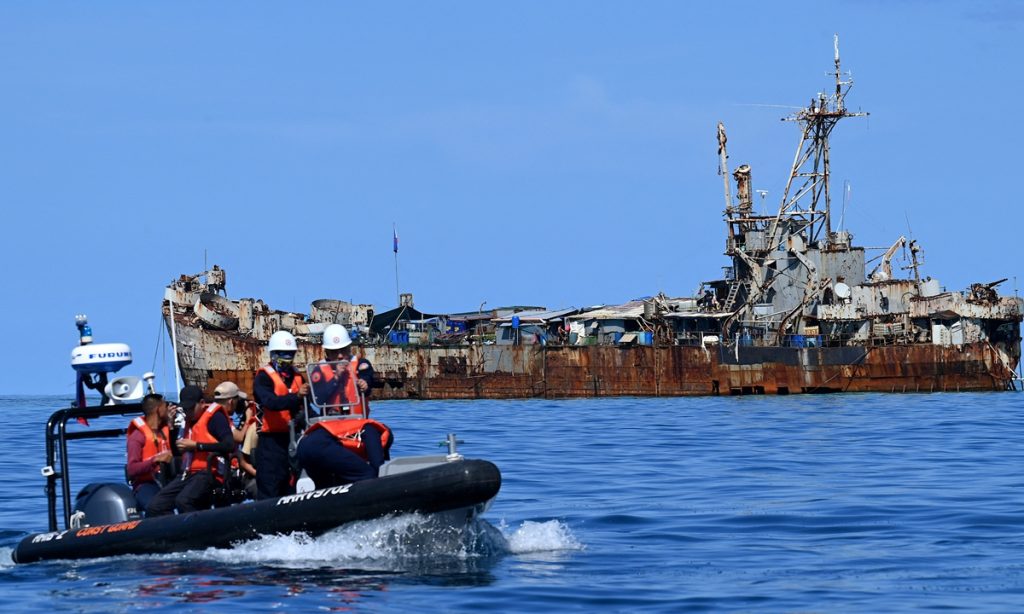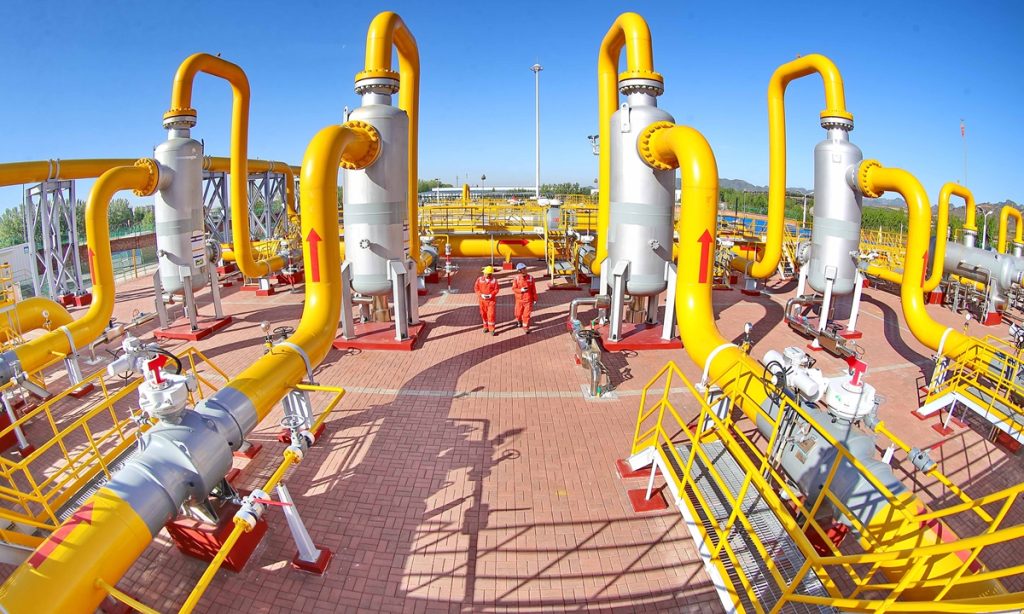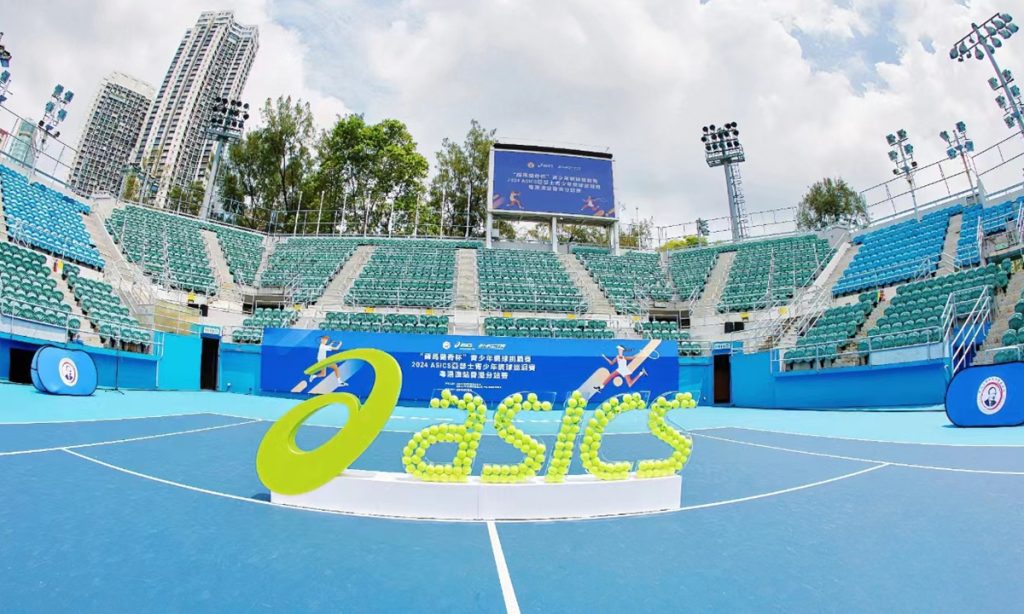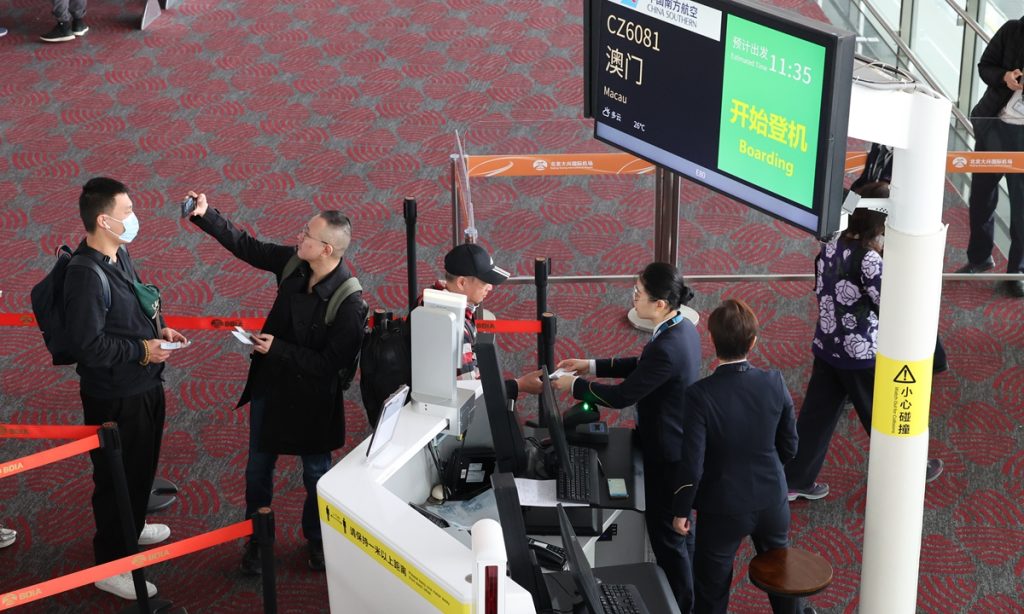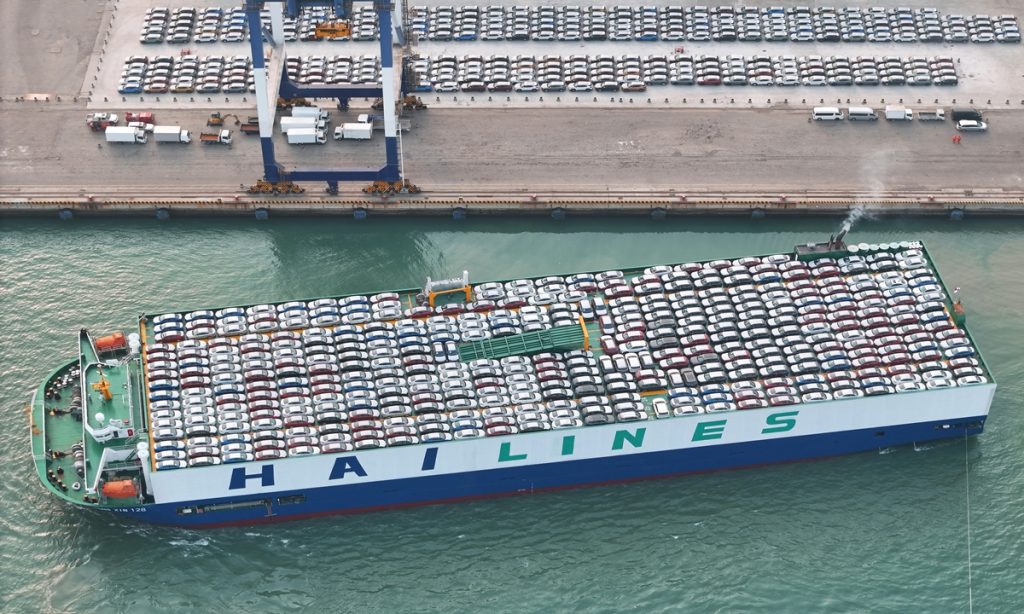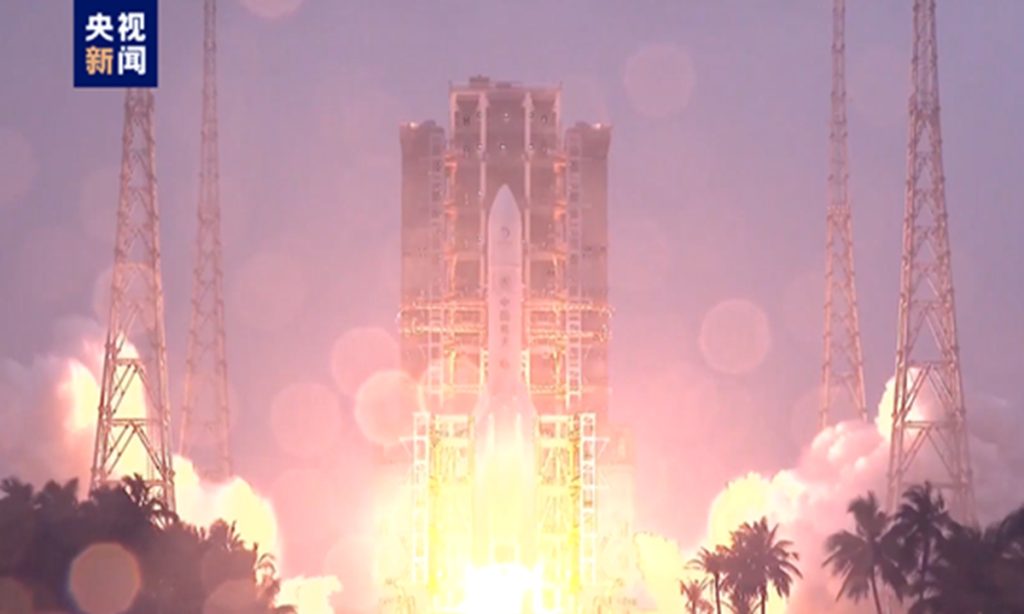China takes fast, effective move to solve payment difficulties of international arrivals, facilitate foreigners’ stay

When Lucas Fan received his friend Jim in Beijing in June 2023, Lucas had to order a taxi for Jim every time he needed one as Jim, from Ireland, could not link his international bank card with WeChat or Alipay payment functions. As the two main social networking apps in China, WeChat and Alipay are virtually indispensable in nearly every aspect of daily life, from chatting, working to shopping, and from taxi-hailing to making electronic payments.
But had Jim pushed his visit back by a month, he would have found it more convenient to travel as a foreigner in China. Alipay and WeChat Pay started to comprehensively upgrade their systems in July 2023 to optimize support for international bank cards to better serve a growing number of international travelers along with bolstering international exchanges.
According to official data, in 2023, the national border inspection authorities checked in a total of 210 million inbound travelers, recovering to 62.9 percent of 2019 levels and the number is expected to continue to grow in 2024.
"This [payment difficulty of foreigners] is indeed an unexpected new problem as mobile payment has developed very rapidly in China," Sun Yeli, Chinese Minister of Culture and Tourism, told domestic and foreign journalists after the closing of China's annual national legislative session in Beijing.
Sun noted that the Chinese central authorities have paid great attention to this issue and have established a coordination mechanism to solve it.
"We are optimizing each step of the inbound tourism process, streamlining procedures ranging from visa applications to flight arrangements, hotel check-ins, shopping, and sightseeing. With the implementation of these measures, foreign tourists visiting China will enjoy the same level of convenience in accommodation, transportation, and shopping as domestic tourists," Sun said.
"We sincerely welcome tourists from all over the world to visit China, enjoy the charm of Chinese culture, discover rapid changes in the country, and experience the hospitality of the Chinese people," Sun noted.
Get through 'reverse digital divide'
The new mobile payment represented by barcode payment has become the mainstream payment tool in China. However, in most countries around the world, especially in some developed economies, bank cards are still the mainstream payment tool.
In recent years, with the rapid development of informatization and digitization in China, the popularity of mobile payment has increased rapidly. Now, the popularity of digital payment in China may be twice as high as in other countries. And everyone in the country is very accustomed to using a mobile phone for all aspects of life. However, this has made China too "digitized" to be "out of touch" internationally. Some people say that this has created a "reverse digital divide" between China and foreign countries.
One main difficulty for foreigners in making mobile payments lies in the low success rate of overseas individuals using Alipay and WeChat to link overseas bank cards, as well as payment limits.
When overseas users enter China and want to link a third-party payment app, they need to provide real-name information. Some overseas users may be unwilling to provide their personal information for personal privacy concerns. In addition, the transmission of cross-border information is a long-standing difficult issue even in the traditional financial area due to different principles and rules in various countries in the issue.
Aside from mobile payment, foreigners were also reported to encounter obstacles in using cash and international cards in China. A typical example of this is foreigners like Jim who had difficulties in hailing and making payments in taxis in China, as due to the popularization of online payment, most Chinese taxi drivers receive orders on car-hailing apps and present a QR code to passengers to effect payment. Fewer and fewer of them handle cash, not to mention POS devices.
"Taxis are often the first local service that overseas business people and tourists come into contact with after arriving, and it is also one of their main ways of getting around the city. However, payment difficulties are particularly prominent in taxis," Yang Guoping, chairman of the Shanghai Dazhong Transportation Group and a representative to the 14th National People's Congress, told China Business Journal.
High transaction fees are also another obstacle. The single transaction fee for foreign card payments is basically between 2.5 percent to 3.5 percent, with VISA and MasterCard having a single transaction fee of around 3 percent, while the single transaction fee for domestic cards is around 0.6 percent, and mobile payment fees are even lower, with Alipay at 0.38 percent, according to a report published by yicai.com.
Many domestic merchants are not willing to pay high cross-border credit card transaction fees, but rather encourage foreign tourists to use cash, Alipay, or WeChat Pay, according to the report.
Step up efforts to address problems
Facing these problems, Chinese authorities and platforms are moving fast to address the obstacles to help facilitate foreigners' stay in the country.
On February 23, the State Council executive meeting reviewed and approved the "Opinions on Further Optimizing Payment Services to Facilitate Payments," (referred to as the "Opinions"), emphasizing the need to focus on the payment inconvenience of groups such as the elderly and foreigners coming to China.
On February 29, the People's Bank of China held a meeting to promote the optimization of payment services. On March 1, the State Council Information Office held a regular policy briefing on further optimizing payment services and enhancing payment convenience.
Zhang Qingsong, Deputy Governor of the People's Bank of China, introduced the specific content of the above mentioned "Opinions," including promoting the improvement of the bank card acceptance environment and adhering to the positioning of cash as the bottom line, among others.
On the evening of March 7, the "Opinions" were officially released, closely followed by implementations by various platforms like Alipay and WeChat Pay.
If Jim came to Beijing now, whether arriving at the Beijing Capital International Airport (PEK) or the Daxing International Airport, he could go directly to a service center outside the international arrival gate and seek help from staff to install Alipay or WeChat.
He could also directly withdraw RMB from the ATMs beside the service desk if he did not wish to bother with buying a Chinese phone card or had worries about personal information security. The service center could also provide him with smaller bank notes if necessary.
If he uses Alipay with real-name registration, he would be able to make a single transaction with a maximum limit of $5,000 and a maximum annual transaction limit of $50,000.
If Jim was a first-time user of WeChat Pay from abroad, he could also directly add his international bank cards to quickly activate the WeChat payment function without needing to buy a Chinese phone card. By linking an international card, he could use WeChat Pay in China within a certain amount of spending without verification.
As one of China's most international metropolises, Shanghai led the charge in providing international visitors with convenient payment services.
Since late 2023, Shanghai has taken the lead in installing over 36,000 points of sale (POS) machines that can accept foreign bank cards in commerce, cultural, and tourism sites, airports, and railway stations throughout the city, according to the Shanghai government website.
Near Yuyuan Garden, one of the most popular tourist sites in downtown Shanghai, small boards that read "Visa, Master, JCB… now available" are seen on the cashier counters of most shops and restaurants there. According to a cashier at a three-story shop selling souvenirs, clothes, and skincare products, the shop started offering foreign bank card payment services in November 2023, when Shanghai hosted the 6th China International Import Expo.
This improvement has particularly excited many foreign excursionists, who have little time to withdraw cash or get used to China's digital payment systems.
"I can't wait to directly pay with my bank card; that's much better and convenient for us international visitors," a Japanese college student told the Global Times ahead of the Chinese New Year in February. She planned to have a week-long stay in this city.
According to yicai.com, the coverage rate of key merchants accepting foreign cards in Shanghai and neighboring Zhejiang Province in East China has exceeded 90 percent.
Determined to further open up
According to media reports, by 2023, millions of foreigners in China had used mobile payments and truly enjoyed the convenience. In the fourth quarter of 2023 particularly, the scale of mobile payment transactions by inbound travelers significantly increased, with a total of 35 million transactions amounting to 5 billion yuan ($695.6 million).
By taking multiple measures to improve the convenience of mobile payment, it is not only an important starting point for Chinese mobile payment to go global, but also a vital part of China's recent efforts to expand international exchanges, including tourism and trade, experts pointed out.
Improving the convenience for foreign nationals to work and study in, and travel to China has been included in the Report on the Work of the Government (2024) announced during the just concluded two sessions.
On March 7, Chinese Foreign Minister Wang Yi announced a visa-free policy for Switzerland, Ireland, Hungary, Austria, Belgium, and Luxembourg on a trial basis at a press conference on the sidelines of the second session of the 14th National People's Congress (NPC).
In January, China had already announced five measures, including shortening visa application forms, lowering visa fees for the entire year, exempting some applicants from fingerprinting, providing walk-in without appointment visa application services, and extending a unilateral visa-free policy to a select number of countries including France and Germany on a trial basis.
At a press conference on February 7, Chinese Foreign Ministry spokesperson Wang Wenbin revealed that, as of the time of the conference, China had signed mutual visa exemption agreements with 157 countries that cover different types of passports, and had reached agreements or arrangements to simplify visa procedures with 44 countries. China has a complete mutual visa exemption with 23 countries.
These measures show China's determination and concrete efforts to keep opening up, experts noted.
They proposed to continue to expand the scope of visa exemptions so that more foreign travelers can get a chance to enjoy China's large and diverse landscapes, the convenience brought by the 5G network and high-speed bullet trains, and understand China through first-hand experience rather than some second-hand biased reporting.
